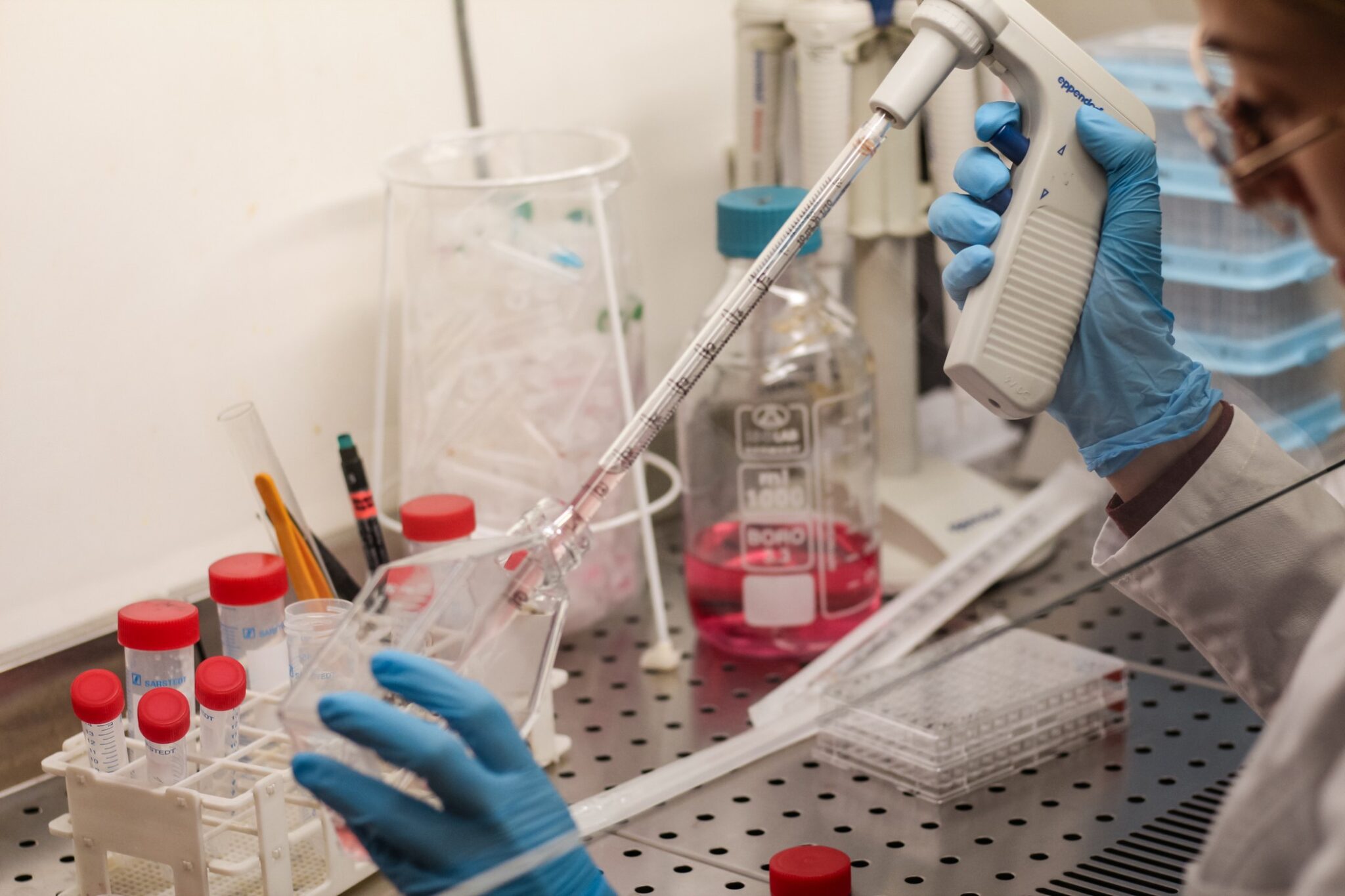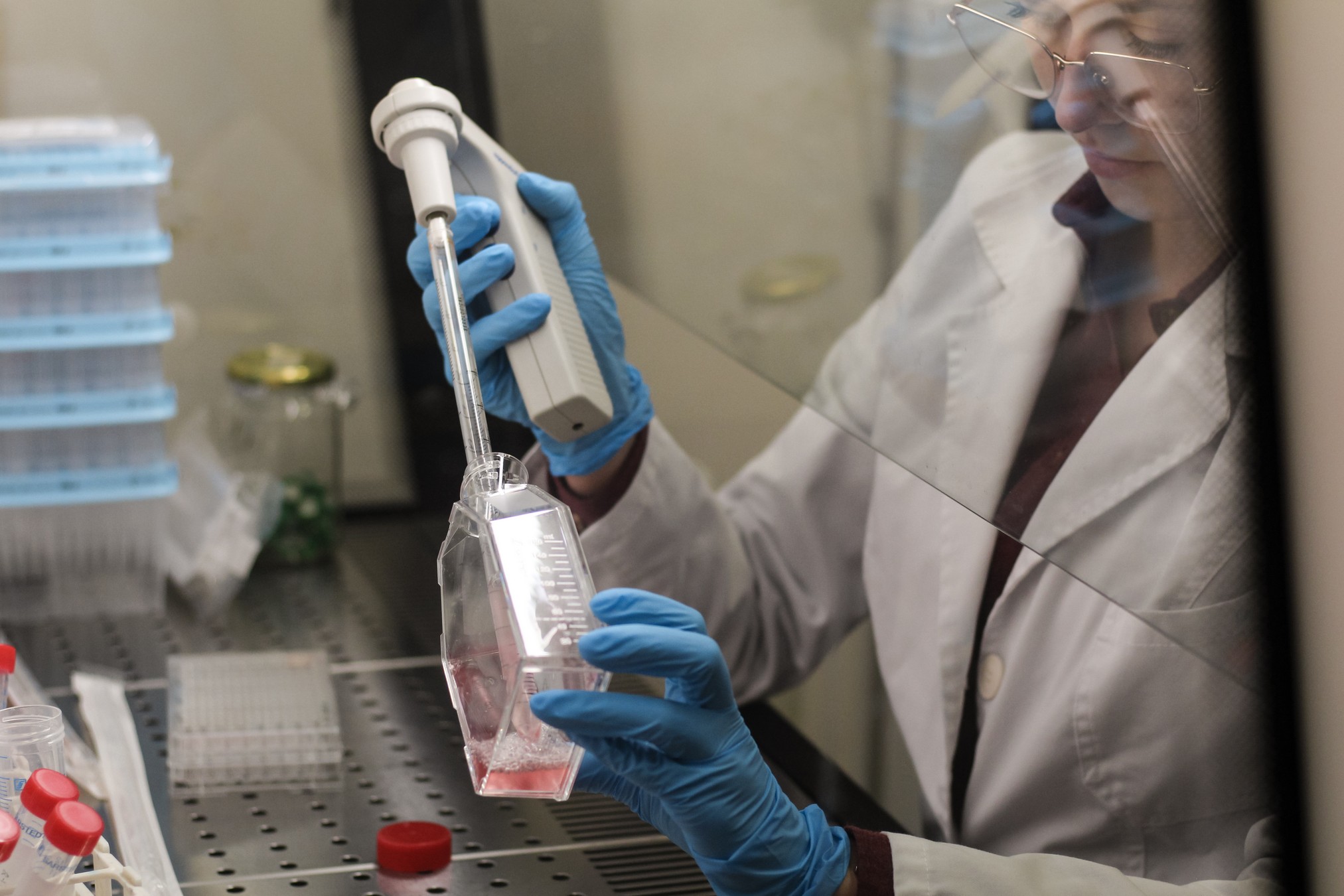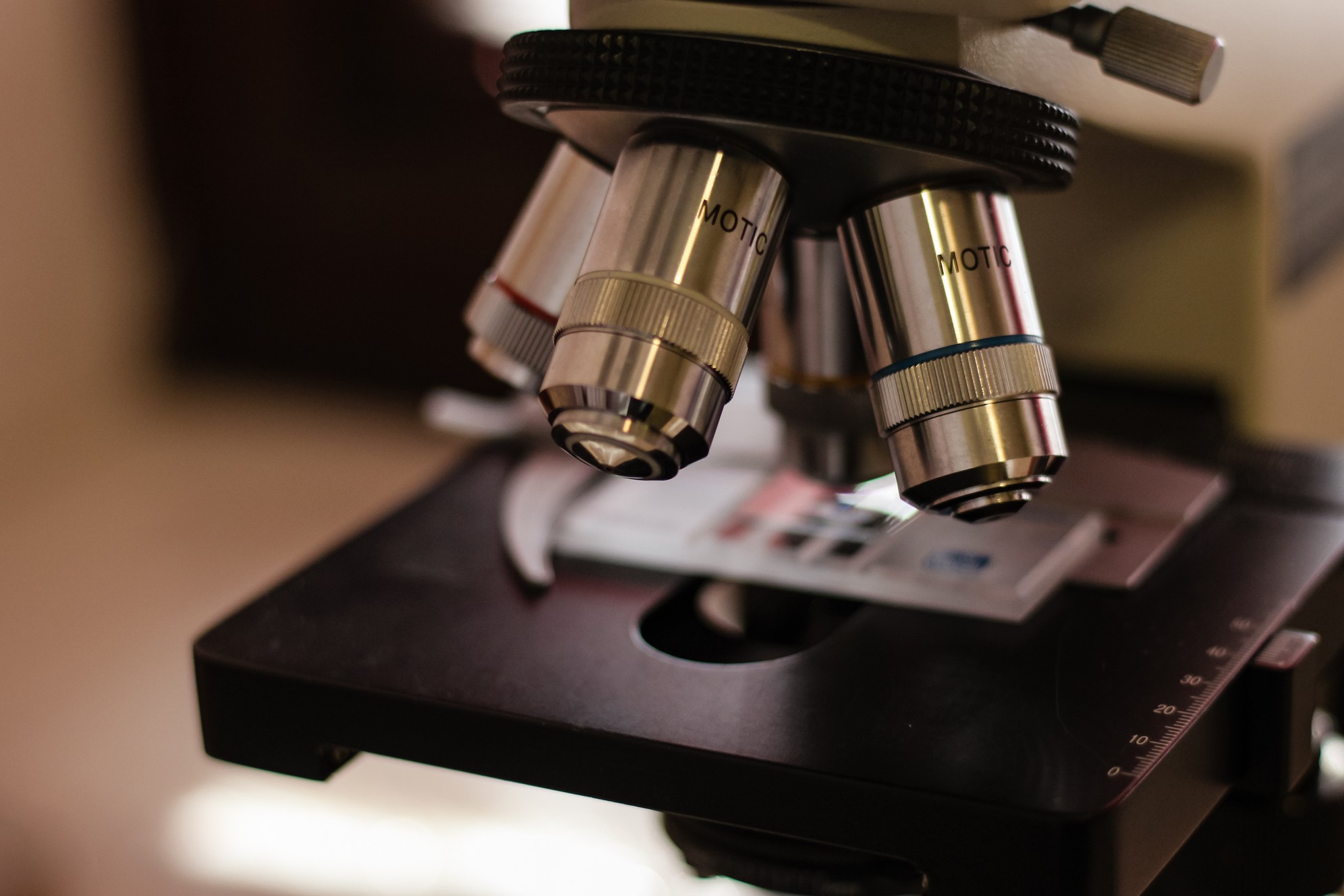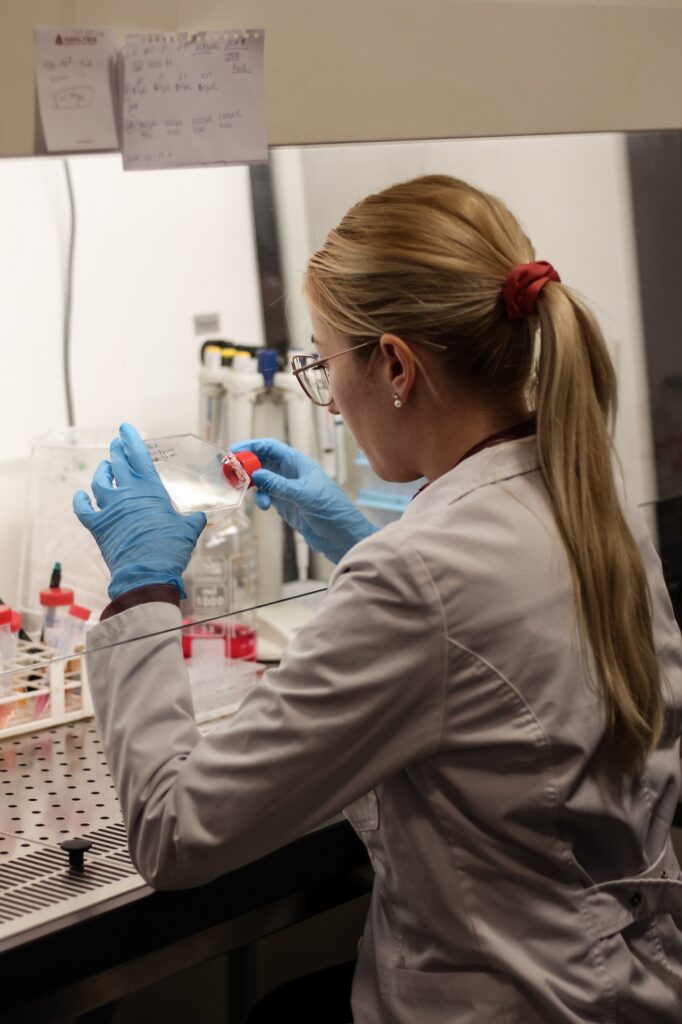


Cultured meat requires less land and water, is less polluting, but is still costly to produce. The critical problem in cultivated meat science is to identify/develop fetal bovine serum (FBS) alternatives as growth supplements. Peptides, obtained by protein hydrolysis from different sources are promising alternatives to the FBS, with ability to improve the proliferation and differentiation potential of muscle cells for meat cultivation. However, usual poor water of solubility of industry-relevant (plant) proteins and the lack in knowledge of the structure-activity relationship of obtained peptides limit the application potential of peptides as FBS alternative. On the other hand, phycobiliproteins (PBPs), the most abundant proteins in algae, are characterised with a good water solubility and the unique presence of covalently attached tetrapyrrole chromophores. These chromophores have an excellent antioxidant activities and strong redox active metal binding properties. Hence, the PBPs digestion releases the chromopeptides with substantially stronger bioactive properties than “regular” peptide, giving them a strong potential as FBS alternative.

Our project centers on harnessing algal proteins to develop alternative, sustainable food sources. By focusing on algae—a resource that requires less land, water, and energy compared to traditional livestock farming—our research contributes significantly to reducing environmental footprints. The endeavor to replace Fetal Bovine Serum (FBS) components with (chromo)peptides from algal proteins for cultured meat production further underscores your commitment to minimizing reliance on animal-based products, aligning with global sustainability goals.

At the heart of our project is the innovative use of algal-derived (chromo)peptides as a viable alternative to FBS in cultivated meat production. This pioneering approach not only promises to enhance the scalability and affordability of cultured meat but also sets a new standard for the industry. By exploring the potential of algae in cultivated meat production, our team is at the forefront of developing cutting-edge solutions that could revolutionize the way we think about food and its production.

Our team's dedication to exploring algal proteins for creating innovative food sources represents a significant contribution to the field of alternative protein research. This project not only expands the scope of available protein sources but also offers a promising avenue for developing cost-effective and environmentally friendly alternatives to traditional animal-based products. Through our research, we are paving the way for new discoveries and applications that could have a profound impact on food security, nutrition, and sustainability worldwide.


